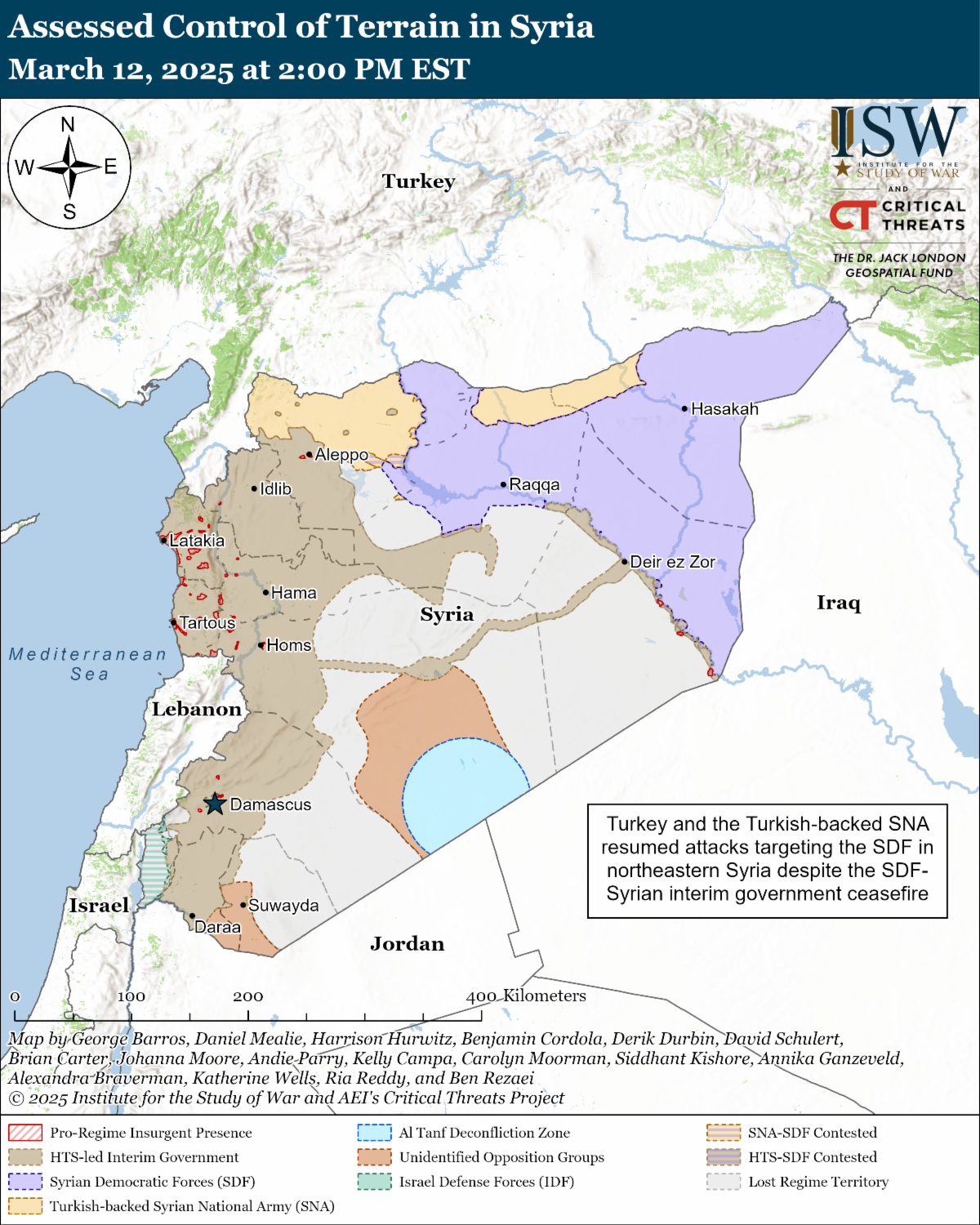The risk of sectarian violence from Syria spilling into Iraq is increasing. A newly formed Shia group called the Ya Ali Popular Formations announced on March 11 that it has begun to pursue Jabhat al Nusra members and supporters around Baghdad. The group is likely referring to Hayat Tahrir al Sham (HTS) members and supporters, given that Jabhat al Nusra was the predecessor group to HTS. The group then posted a video purportedly of masked individuals physically threatening Syrian nationals in a bakery in Baghdad. The group expressed hope that others would emulate these actions throughout Iraq. This comes after the group stated on March 9 that it would “pursue” and “expel” Syrians who support “[HTS] terrorism against the Alawite people and minorities.” Social media accounts claimed that the group is affiliated with either the Iranian-backed Popular Mobilization Forces (PMF) or the Islamic Revolutionary Guards Corps (IRGC).[CTP-ISW cannot verify these claims at the time of this writing. It is not clear exactly what end state the Ya Ali Popular Formations seeks to generate based on its statements thus far. The group may, in fact, seek to stoke sectarian conflict directly.
The Ya Ali Popular Formations’ activity comes at a particularly tense moment in the Iraqi political scene. Sunni parties have tried to relitigate their position in the Iraqi political order in recent weeks, specifically calling for the implementation of long-held political demands. Prominent Shia leaders, including former Prime Minister Nouri al Maliki, have responded harshly, using sectarian rhetoric and conflating Sunni parties with extremist groups. Maliki implicitly accused Sunnis of trying to overthrow the Iraqi federal government. The Iranian-backed Iraqi militia Kataib Sayyid al Shuhada secretary general, Abu Alaa al Walai, similarly compared some Sunni actors to the Islamic State after these actors criticized the Iraqi Federal Supreme Court for blocking certain legislation. The Iraqi Federal Supreme Court suspended the implementation of the General Amnesty Law on February 4. The General Amnesty Law grants amnesty to many Iraqis, including many Sunnis who were arrested under Article 4 of the Anti-Terrorism Law. Several notable Sunnis, including former Parliament Speaker Mohamed al Halbousi protested the Federal Supreme Court’s initial decision.
Key Takeaways:
- Iraq: The risk of sectarian violence spilling from Syria into Iraq is increasing. A newly formed Iraqi Shia group called for attacks and harassment targeting HTS members and supporters.
- Iraq: Iraqi Prime Minister Mohammad Shia al Sudani reportedly withdrew the PMF Service and Retirement Law from the Iraqi parliamentary agenda.
- Yemen: The Houthis announced that they will resume attacks on international shipping, highlighting the threat that they pose to global commerce around strategic maritime routes.
- Iran: Iranian Supreme Leader Ali Khamenei rejected the possibility of nuclear negotiations with the United States, marking the third such instance in recent weeks.
- Iran: The Iranian defense minister paid an official visit to Belarus, highlighting the burgeoning strategic relationship between the two countries.
| 




 [ISW] 이란 업데이트, 2025년 4월 4일
[ISW] 이란 업데이트, 2025년 4월 4일
 [ISW] 이란 업데이트, 2025년 1월 12일
[ISW] 이란 업데이트, 2025년 1월 12일